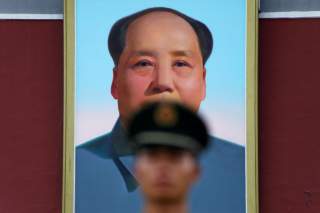The Question: Why Didn't Mao Invade Taiwan?
Why?
The first breakthrough for Chiang's spy catchers came in September 1949, when they uncovered a spy ring and underground printing press in the port city of Keelung. As a consequence, they were subsequently able to track down the official in charge of PLA underground intelligence work in southern Taiwan. They arrested him in Kaohsiung that November. Cai’s long-cultivated spy network then quickly came unglued, as one communist agent after the next was apprehended and compromised.
By January 1950, Taiwan's men in black had closed in on Cai himself. Counterintelligence officers discovered his home address in Taipei and quickly moved to arrest him. When it occurred, the arrest came as a surprise to Cai, but did little to knock the wind out of his sails. Cai, himself a seasoned interrogator, knew exactly what to do in jail to turn the tables on his captors. It didn’t take long. After a brief period of interrogation, Cai convinced MND officers that he had defected and would help them. They allowed him to visit a certain phone booth in downtown Taipei, where he promised to take a call luring in his commanding officer. Despite being escorted through the streets by a large contingent of plainclothes officers, Cai was able to make a successful escape and vanish into the city nightlife.
A manhunt ensued over the following weeks, with counterintelligence officers spending their Chinese New Year holidays tracking down Cai. It was the year of the tiger, and they were hunting. The trail led them to his rural hometown of Changhua, in central Taiwan, where they finally found him. After being on the run for weeks, Cai was cold, destitute, filthy and homeless. His spy ring was broken and he had lost all his friends.
As dusk drew across the land, he was surrounded in a rice paddy. Armed counterintelligence officers circled and closed in. Seeing no way to escape, Cai's last reserves of courage evaporated and he gave himself up without a fight. Although he could have committed suicide, Cai still had too much to live for. He was desperately in love with a young girl who had been captured by counterintelligence officers.
March 1, 1950, was a pivotal date in the history of cross-Strait relations. That evening, after a long interrogation session, Mao's spymaster in Taiwan cracked under pressure and defected. He became a ROC military officer and, in return, gained his girlfriend's freedom, a huge sum of gold, and a high-ranking position in the military. To earn his generous reward, Cai fingered General Wu Shi and Agent Zhu Fengzhi, and revealed the identities of his other collaborators, exposing every major communist officer on the island.
Cai’s information allowed MND officers to make a clean sweep, clearing out enemy spy rings and underground cells across Taiwan. Life-shaking dramas played out quietly. In Taiwan and on the outer islands, PLA operatives were arrested as they filled out forms in government offices, lounged in military barracks, or attempted to cross military checkpoints.
Chairman Mao was oblivious to the tectonic shifts taking place underneath his feet. He found out when the ROC government went public with the round up, publishing front page newspaper pictures of Wu Shi, Zhu Fengzhi, and two other subordinate collaborators, both before and after they were executed in downtown Taipei by firing squad.
In total, eighty separate communist operations were neutralized and over 400 secret agents were arrested. The survivors fled the island and made desperate escapes back to mainland China. Cai’s once formidable intelligence apparatus on Taiwan had been thoroughly decimated, its demise guided by the hands of its own maker.
The invasion of Taiwan was put on hold until Beijing could figure out what to do. In the end, Cai Xiaogan, the PLA spy turned double agent helped buy time for Chiang Kai-shek's emergency government. The outbreak of the Korean War did the rest. The history of cross-Strait relations would never be the same.
The standoff and the spy games across the Taiwan Strait continue to this day.
Ian Easton is a research fellow at the Project 2049 Institute and author of the new book, The Chinese Invasion Threat: Taiwan's Defense and American Strategy in Asia.
Editor’s Note: The above draws from the author's book, The Chinese Invasion Threat: Taiwan's Defense and American Strategy in Asia.
This first appeared last year.
Image: Reuters.

